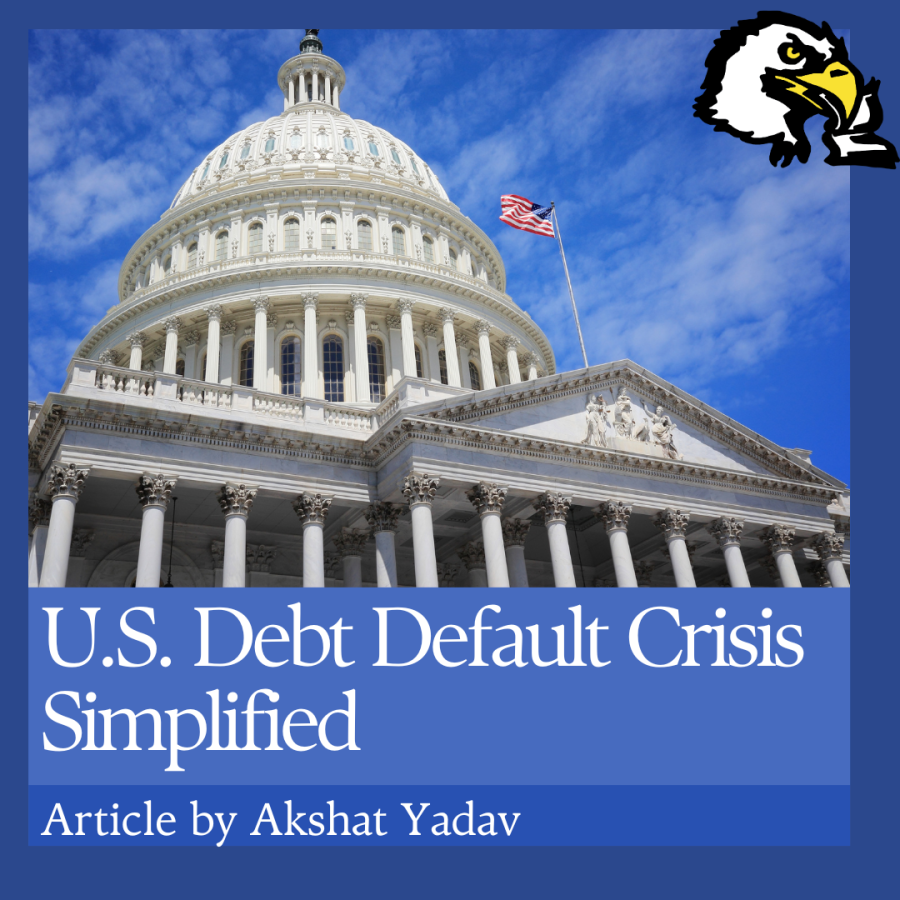The 2023 United States Debt Ceiling Crisis- Simplified
Some context:
The United States’ federal government spends more than it earns through tax revenue on things like Social Security, the Military (Department of Defense), Medicare, education grants, and more.
When the federal government overspends, it is called “deficit spending.” Deficit spending isn’t always “bad” per se. It can be crucial in order to recover the economy from a recession. However, some issues of deficit spending include higher interest rates because the government crowds-out investors by increasing the demand for loans.
But, how does the government find money to recover the difference between what they get from taxes and what they want to spend? Basically the government “exports” its debt by getting money by issuing bonds. They are IOUs which basically say the government promises to pay back the money they borrowed with interest. So the government is paying for things beyond what it earned from taxes by issuing these bonds to individuals, corporations, and even foreign countries.
So what is going on right now?
When the government is in a deficit for multiple years, that deficit accumulates into a sum that the government has to borrow — this total sum is called the national debt. Congress sets a debt ceiling that prevents the government from borrowing money to fund its operations after its borrowing hits it.
Congress regularly raises the debt ceiling but now the Republican-controlled House of Representatives under Kevin McCarthy has objected to doing so again unless the Biden Administration and Democrats agree to spending cuts.
Republicans argue that these cuts on government spending are crucial for fiscal responsibility — the concept that the government has a clean financial record and avoids deficit — whereas Democrats say that the cuts proposed by Democrats would hurt the economy and cause unemployment.
If the two sides do not agree on a compromise that would raise the debt ceiling, then the U.S. would default on its loans. Basically, the government wouldn’t be able to pay back the loans it took to pay for government programs. The consequences of doing so may include a recession, higher interest rates, and the worth of the dollar decreasing globally.
Treasury Secretary Janet Yellen says the U.S. could default on debt obligations as early as June first. It remains to be seen what compromise, if any, occurs to address the looming crisis.
Your donation will support the student journalists of Enloe Magnet High School, allowing us to cover our annual website costs. We are extremely grateful for any contribution, big or small!

(He/him)
Akshat is a senior here at Enloe. He is excited to return for his third year on the staff to work on the Eagle's Eye's newest (and best) section,...










